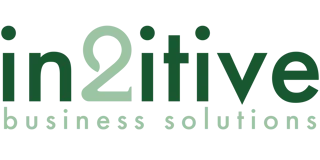Accurate coding: the cornerstone of revenue growth for healthcare organizations, particularly vital in ambulatory surgery centers performing high-dollar services. Billing errors often originate during the coding phase, when procedures are not accurately documented or translated from clinical notes to billable codes. While obvious errors may lead to denials, subtler inaccuracies can pass unnoticed yet significantly diminish reimbursement. Here are the three most prevalent coding errors in ASCs:
Mistake 1 | Undercoding Complex Procedures
Undercoding, where a procedure is assigned a less complex code than warranted, is a frequent source of revenue loss. This often stems from inadequate documentation or the failure to translate detailed operative notes into appropriately billable codes. For instance, a multifaceted orthopedic procedure might be incorrectly coded as a less complex procedure, resulting in reduced reimbursement, without the appropriate details documented in the operative report.
Solution: Conduct regular audits to identify and understand the underlying causes of undercoding. Utilize this data to develop targeted training for staff, and employ advanced coding software to verify accuracy across all claims.
Mistake 2 | Missing Modifiers
Modifiers are critical for enhancing the specificity of codes, particularly in procedures with multiple components. However, they are often missed in the coding process. For example, in orthopedics, the modifier 59—indicating a distinct procedural service—is frequently overlooked or misused.1 In a variety of specialties, laterality modifiers are incredibly important to report accurately. Eyes must be identified in the documentation so that the appropriate eye laterality modifier is applied. There are modifiers for right and left, but also structures with several possible lateralities like the correct finger, the correct toe, or the correct eyelid.2
Solution: Prevent these errors by investing in comprehensive training focused on modifiers, establishing clear coding guidelines, and promoting effective communication across departments to ensure consistent and complete information transfer throughout the billing process.
Mistake 3 | Using Outdated Forms
Not updating patient encounter forms to reflect new or revised codes leads to significant revenue leakage. One fairly recent change was the inclusion of glaucoma treating stent insertion during cataract surgeries. These codes need appropriate diagnoses for both the cataract and the glaucoma (type, eye laterality, stage etc.). With medical codes updated annually and in HCPCS code’s case, quarterly, outdated forms prevent accurate code assignment for newer procedures, especially those involving advanced technologies CPT Category III codes.
Solution: Regularly review and update all encounter forms to incorporate the latest coding changes. Stay abreast of updates in coding systems and collaborate with coding experts to ensure your forms are current and comprehensive.
How in2itive Can Help
Managing a flawless coding workflow and staying current with frequent updates is a challenging task for any ASC billing team. Partnering with an ASC-focused revenue cycle management (RCM) firm like in2itive can transform your coding processes. Leveraging our deep expertise in coding and comprehensive audit services, in2itive helps maintain an industry-standard coding error rate of 5% or less, ensuring your revenue cycle is efficient and error-free.
Ready to enhance your financial performance? Contact in2itive today for a consultation and learn how our expert-led coding solutions can significantly improve your bottom line.
Sources
- Lieberman, J., McNally, M., Nagle, J. (2019, April 1). Modifier 51 or 59? How to correctly report multiple procedures. American College of Surgeons. https://www.facs.org/for-medical-professionals/news-publications/news-and-articles/bulletin/2019/04/modifier-51-or-59-how-to-correctly-report-multiple-procedures/
- Anatomical Modifiers. Novistas Solutions https://www.novitas-solutions.com/webcenter/portal/MedicareJL/pagebyid?contentId=00144519

